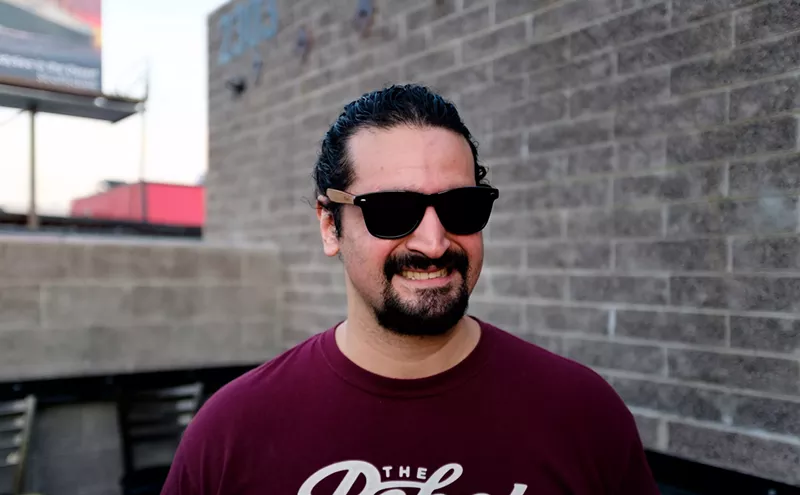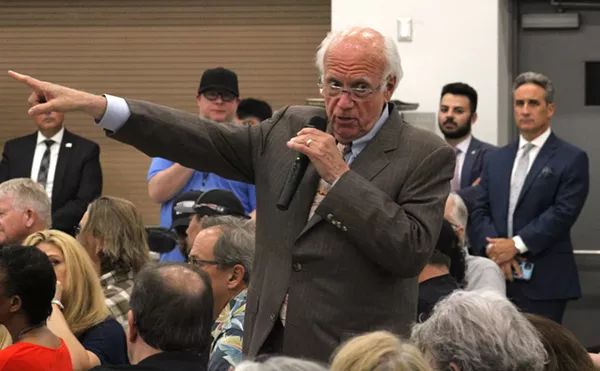And you'll get paid for using cannabis.
Sounds too good to be true, right?
ASU researcher Madeline Meier confirmed today that information posted on ASU's website about the study is accurate.
The site states:
"The Substance Use, Health, and Behavior Lab is recruiting participants who are Arizona medical marijuana card holders between the ages of 18 to 30 interested in participating in a study that compares the immediate effects of your at-home use of different types of cannabis. This study will take approximately 10 hours over the course of 1 week.
"During this week, participants will be asked to come to the lab for a two hour visit and then receive several text messages per day asking to complete a short survey related to their cannabis use and effects. Participants will be compensated $95 for their voluntary involvement."
Ninety-five bucks? At one of Arizona's 100-plus, state-authorized dispensaries, that'll buy you anywhere from a quarter-ounce to a half-ounce of primo weed.
Meier, who oversees work at ASU's Substance Use, Health, and Behavior Lab, has been on the forefront of medical-marijuana health research. Her work has made headlines worldwide.
In 2012, the lab concluded that long-term cannabis use can be associated with an eight-point decline in IQ from childhood to adulthood.
But her research isn't always negative for cannabis consumers.
The results of a study she supervised last year showed that over the long term, the worst apparent problem for cannabis users was less-healthy teeth and gums. The study turned up no evidence of lung dysfunction or heart problems, and cannabis users had better-than-average body-mass index, waist circumference, blood-sugar control, and cholesterol readings.
Last month, the scientific journal Addiction published results of another study on which she and ASU researchers participated that showed no evidence of IQ loss in adolescents ages 12-18 who use cannabis.
"Findings from the two studies suggest that short-term cannabis use in adolescence probably does not harm IQ but long-term cannabis use might," Meier told New Times on Friday. "The major concern is that some adolescents who use cannabis will find it difficult to quit and will develop long-term dependence on cannabis as adults, which has been found to harm cognitive function."
Meier declined comment about the new study still underway at ASU. It's unclear from the ASU website when the study ends, or when the results may be published.
Also not stated is exactly what the study is trying to determine, beyond the effects of different "types" of cannabis. That could mean different strains, or different forms of cannabis, like dried flower, edibles, concentrates, or tinctures.
In general, according to the website, the lab is conducting current research on possible links between cannabis use and "psychotic-like experiences, and vascular health," vaped cannabis, and whether "older adult marijuana users show neuropsychological impairment and functional impairment in everyday life."
More can be learned about new study, including its eligibility requirements, by calling the Substance Use, Health, and Behavior Lab at 480-727–5799, or emailing [email protected].













